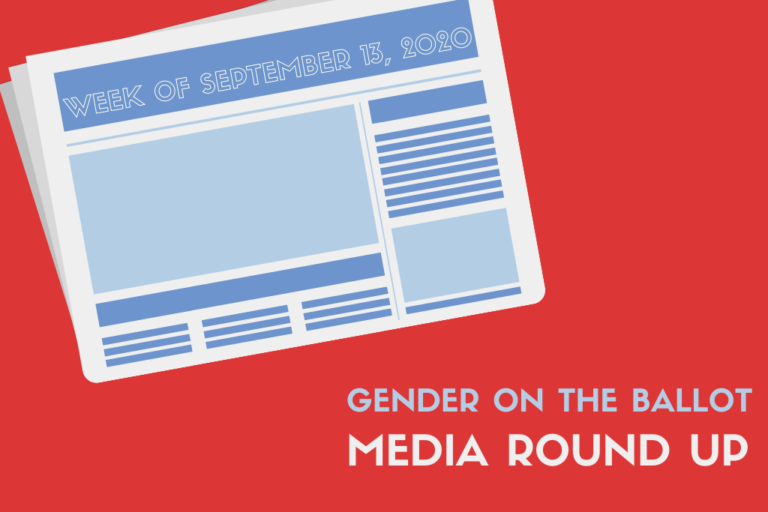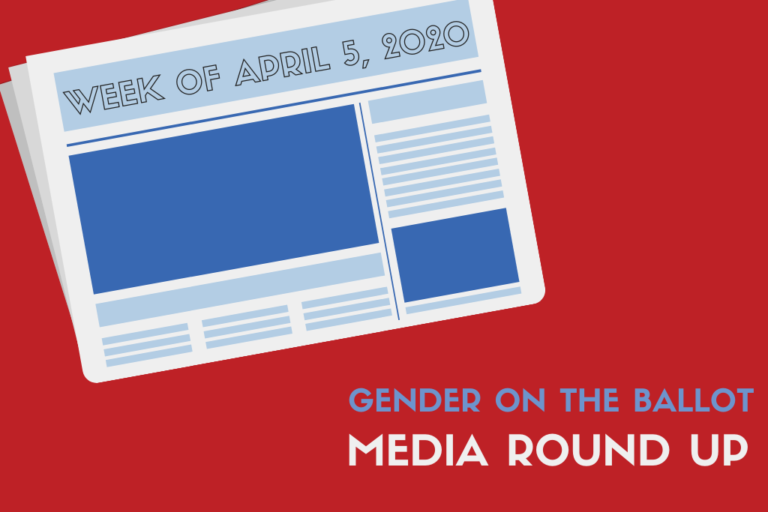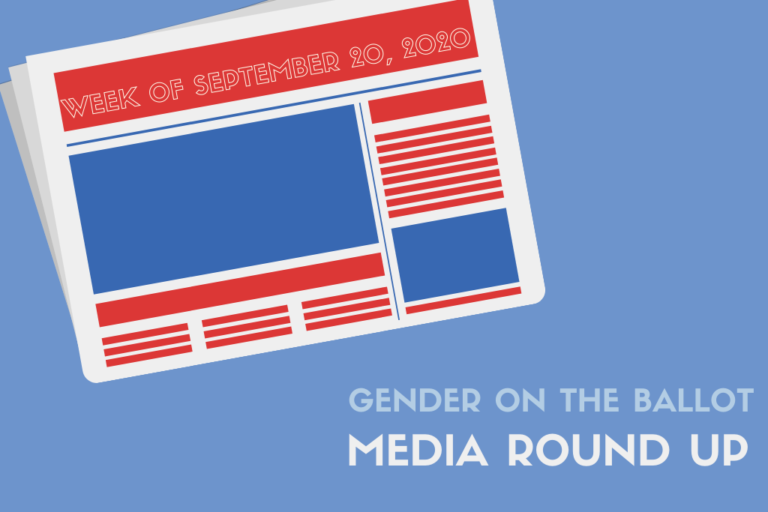Happy Friday! Welcome to our Media Round Up. Each week we’re collecting and sharing our…
Media Round Up: Week of September 5th

Happy Friday! Welcome to our Media Round Up, where each week we’re collecting and sharing our favorite gender + politics stories. Here’s what caught our eye this week:
As pandemic aid ends, these women feel left behind at a crucial time: ‘The recovery hasn’t happened’
Anne Branigin, The Lily
As the country enters the nineteenth month of the COVID-19 pandemic, many women feel like federal recovery has yet to come. Licensed cosmetologist LaShondra White was ’politely released’ from her department store role of nine years and had to wait seven weeks before unemployment benefits kicked in. When reflecting on those seven weeks without pay, White says, “I budgeted every single penny…If anything crazy like a health issue or anything like that would have happened, or even just a major repair around the house, we would have been done.”
With the growing persistence of the Delta variant, job reports prove dismal in contrast with many states ending their pandemic-era unemployment benefits. White ended up finding part-time work and therefore only received part-time unemployment benefits. When reaching out to her local politicians, White was met with little to no answer on how she could possibly receive full-time benefits.
Read the full story here.
How abortion restrictions like Texas’ push pregnant people into poverty
Chabeli Carrazana, The 19th*
The Texas six-week abortion ban has stirred the nation. Data shows that a possible result of the bill is that pregnant people can be pushed into poverty when they don’t get the services they need. In one study, 72 percent of women that did not get an abortion ended up living in poverty while 55 percent of women who did not get an abortion did not live in poverty. Correlations between abortion access can also be seen in credit reports and lack of affordable childcare.
Read the full story here.
Many Black women felt relieved to work from home, free from microaggressions. Now they’re told to come back
Natachi Onwuamaegbu, Washington Post
One of the biggest transitions during the COVID-19 pandemic has been working from home. At first met with challenges and uncertainty, after realizing the many benefits of working from home, companies have either pledged to do a hybrid work week upon returning to the office or work from home indefinitely. From saving time and money on commutes to more flexible schedules, the world’s work life has been completely reimagined. Another benefit more specifically for Black women is the lack of microaggressions faced in a work from home environment.
“There’s so much complexity to how we relate to each other in the workplace and whether or not [Black women] feel comfortable showing up as their whole self,” said the [Gallup] center’s director, Camille Lloyd, in an interview. “Those pressures are not always there when you’re thinking about remote work.”
Read the full story here.
The other historic election race you may not know about: A wave of Black immigrant candidates running for Boston City Council
Tiana Woodard, Boston Globe
Boston’s upcoming City Council election is its most historic yet, with nine out of the four dozen candidates in the running for district and at-large seats being Black immigrants. Between 2009 and 2019, Boston’s Black immigrant population grew by 26%. The nine candidates represent countries throughout the African diaspora including; Somalia, Haiti, Cape Verde, the Dominican Republic, Nigeria, and more.
“This election is probably a landmark in terms of the diversity of candidates running,” said Jim Vrabel, a Boston historian and author of The People’s History of the New Boston. “We’ve become a more diverse city, and we’re going to get more diverse representation.”
Read the full story here.







